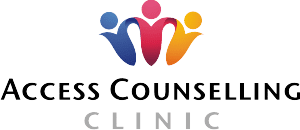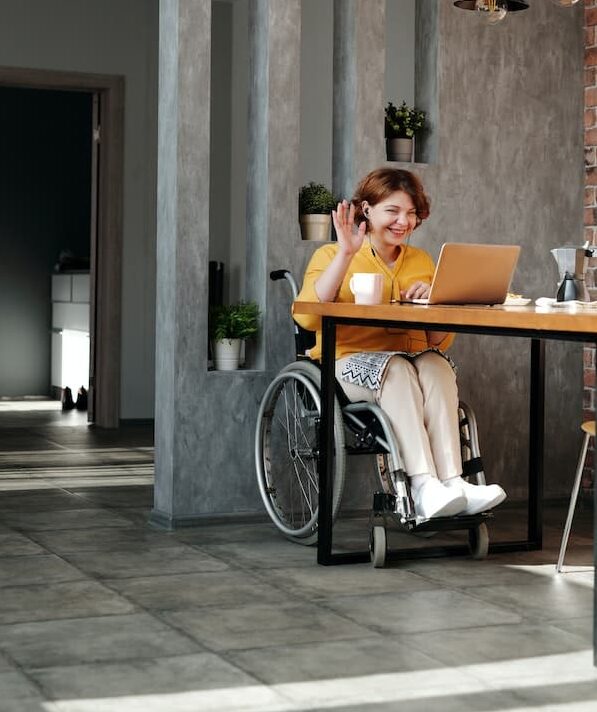Ireland is home to a significant number of individuals affected by mental health disorders, with anxiety and depression being two of the most prevalent. According to a study published in 2020, over 20% of the Irish population screened positive for Generalized Anxiety Disorder (GAD), while 22.8% screened positive for depression. These statistics highlight the urgent need for accessible and effective mental health support services in the country – online counselling.
Furthermore, according to a survey conducted in 2019, the percentage of adolescents in Ireland reporting severe anxiety has doubled since the initial survey. Researchers say this indicates that the issue is affecting younger generations as well. In this context, online counselling has emerged as a promising alternative to traditional counselling, offering convenient and cost-effective access to professional support.

What Is Online Counselling?
Online counselling, also known as e-counselling, teletherapy, or virtual counselling, is a form of mental health therapy conducted over the Internet. It is a relatively new concept that has gained popularity in recent years, particularly in light of the COVID-19 pandemic. Online counselling offers individuals experiencing mental health issues an alternative to traditional in-person therapy that is more convenient, accessible, and cost-effective.
Online counselling can be conducted in various forms: video conferencing, phone calls, messaging, or email. The most common form is video conferencing, which allows for face-to-face interaction between the client and therapist. The client can communicate with the therapist in real time, just as they would in an in-person session.
Phone calls are also an option, providing a convenient and straightforward way to communicate with the therapist. Messaging and email are more asynchronous forms of online counselling, allowing clients to communicate with their therapist at their convenience.
Despite its virtual nature, online counselling is similar to traditional in-person counselling in terms of the types of therapies offered. Clients can receive individual therapy, couples therapy, family therapy, or group therapy. The same techniques and approaches used in traditional counselling can also be used in online counselling, including cognitive-behavioural therapy, psychodynamic therapy, and mindfulness-based therapy.
Is Online Counselling Effective in Treating Anxiety and Depression?
Since it is a relatively new method, many wonder if online counselling is as effective as traditional counselling in treating anxiety and depression. The good news is that research suggests it is just as beneficial as in-person counselling.
One study evaluated the effectiveness of Internet-based cognitive-behavioural therapy (iCBT) in reducing symptoms of anxiety and depression. The results revealed that the outcomes of iCBT were comparable to those of traditional face-to-face therapy in the 12 months preceding the pandemic. In other words, iCBT was found to be an effective alternative to conventional therapy for treating anxiety and depression.
The outcomes of the study mentioned above were consistent with another research, which found that online counselling was as effective as in-person therapy in treating anxiety and stress. The study also found that the effects of Internet-based counselling continued even after it had ended.
Another study also found that online therapy can be a helpful option for college students who are experiencing symptoms of anxiety and depression.
Clearly, a growing body of research suggests that online counselling can be an effective treatment not just for anxiety and depression but also for other mental health conditions like panic disorder.
Why Consider Online Counselling for Your Anxiety or Depression?
Apart from its effectiveness, Internet-based therapy has other benefits. For one, it makes counselling accessible to people living in rural or remote areas where traditional therapy is not readily available.
Online counselling also allows people to access therapy from the comfort of their own homes, eliminating the need to travel to appointments. This convenience makes it easier for people to fit therapy into their busy lives. It can also be especially helpful for individuals with mobility issues or limited access to transportation.
Additionally, Internet-based therapy offers greater anonymity and privacy than traditional counselling. Some people may feel more comfortable sharing their thoughts and feelings with an anxiety or depression counsellor online, where they can remain anonymous and avoid the potential stigma associated with seeking mental health treatment.
Lastly, online therapy is often a more cost-effective option than traditional counselling. Many online counsellors charge lower fees than in-person therapists, and there are no additional costs associated with commuting or parking.
Is Online Counselling the Right Option for You?
While online counselling has been found to be effective for many individuals struggling with anxiety, depression and other issues, it is important to note that it may not be the right option for everyone.
For one, some individuals may prefer the face-to-face interaction of traditional counselling. Moreover, building a therapeutic relationship with a counsellor can be challenging when communication is limited to online platforms. Also, individuals who require more intensive treatment, such as those with severe and persistent mental illness, may benefit more from in-person treatment.
When considering this form of therapy, it is crucial to weigh the benefits and drawbacks and determine if it meets your individual needs. It is also essential to assess your own comfort level with technology. While most online counselling platforms are user-friendly, some individuals may feel uncomfortable or experience technical difficulties that can interfere with the therapeutic process.
Ultimately, the decision to pursue online counselling for your anxiety or depression rests on your unique circumstances and preferences.
Choosing the Right Online Counsellor for Anxiety and Depression in Ireland
If you’re considering Internet-based therapy, it’s crucial to keep in mind that not all counsellors are created equal. The quality of care you receive can vary widely depending on your chosen therapist’s qualifications, experience, and approach.
To ensure the effectiveness of your treatment, it’s vital to select an online counsellor who is well-qualified and experienced in treating anxiety and depression. Be sure to evaluate their background and credentials, including their qualifications, certifications, and areas of expertise.
Also, take into account their approach to therapy and availability. Some online counsellors may offer more structured, goal-oriented treatment, while others may focus on providing a more supportive and flexible approach.
Lastly, the importance of a good fit between client and therapist cannot be overstated. Finding a therapist you feel comfortable opening up to is essential. Choose someone who can provide personalised, tailored care that addresses your unique needs and concerns.
Remember, the success of your treatment depends on finding a qualified therapist who meets your needs. So, don’t simply pick the first online depression or anxiety counsellor you find. Do your due diligence – research before choosing!
Tips for Making the Most of Your Online Therapy Experience
When it comes to online counselling, a few tips and tricks can help you get the most out of your virtual therapy sessions.
One important aspect is setting clear goals and expectations for therapy. Before beginning treatment, take some time to think about what you hope to achieve and what outcomes you would like to see. Discussing these with your therapist can help ensure that you’re both on the same page and working towards the same goals.
Creating a comfortable and private environment for your therapy sessions is also crucial. Find a quiet and private space where you won’t be interrupted or distracted during your sessions. Consider using headphones or earbuds to minimise outside noise and enhance the therapeutic experience. Additionally, ensure your device is set up in a comfortable position that allows you to see and hear your therapist clearly.
Also, it’s essential to remain committed and engaged in the therapy process. This may involve completing homework assignments, practising coping skills outside of therapy sessions, or simply staying open and receptive to feedback and guidance from your counsellor. By staying engaged and actively participating in therapy, you can maximise the benefits of online counselling and achieve positive results.
In conclusion, online counselling is a viable and effective option for those struggling with anxiety and depression. It provides a comfortable, flexible, and affordable way to access therapy from the comfort of your own home. By choosing the right online counsellor, you can receive the support and guidance you need to overcome these issues and improve your mental health.
Remember, mental health is nothing to be ashamed of. Seeking help is a sign of strength, and online counselling can be your key to beating anxiety and depression. Break the stigma and embrace the power of technology to improve your mental health.
Are you suffering from anxiety or depression? Take the first step towards a happier, healthier life and consider online counselling today! Call us now on 01 5240708 to book an appointment with one of our experienced and compassionate anxiety or depression counsellors.
Royalty-free images supplied from Pexels as part of SEO service from 3R




